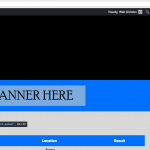This thread is resolved. Here is a description of the problem and solution.
Problem: I would like to create a custom search View that includes a custom select field, where the options are defined by a custom shortcode. When the page first loads, I would like to select one of the filters by default.
Solution: The only documented way to select a filter by default in a parametric search form is to use a URL parameter. Any other solution will require custom code. If you want to use a custom shortcode to define the value options for a wpv-control field, you must first register that custom shortcode in Toolset > Settings > Frontend Content > Third party shortcode arguments.
This is the technical support forum for Toolset - a suite of plugins for developing WordPress sites without writing PHP.
Everyone can read this forum, but only Toolset clients can post in it. Toolset support works 6 days per week, 19 hours per day.
| Sun | Mon | Tue | Wed | Thu | Fri | Sat |
|---|---|---|---|---|---|---|
| 8:00 – 12:00 | 8:00 – 12:00 | 8:00 – 12:00 | 8:00 – 12:00 | 8:00 – 12:00 | - | - |
| 13:00 – 17:00 | 13:00 – 17:00 | 13:00 – 17:00 | 13:00 – 17:00 | 13:00 – 17:00 | - | - |
Supporter timezone: America/New_York (GMT-04:00)
This topic contains 13 replies, has 2 voices.
Last updated by 6 years, 8 months ago.
Assisted by: Christian Cox.
